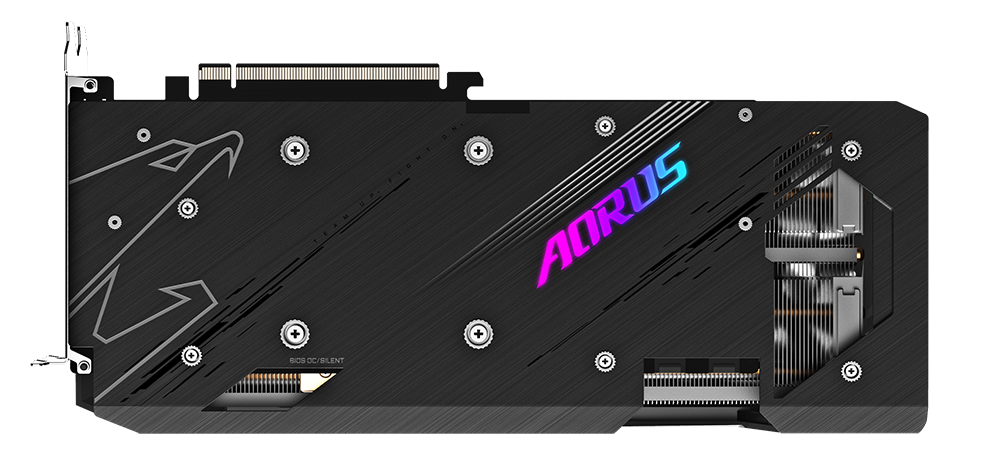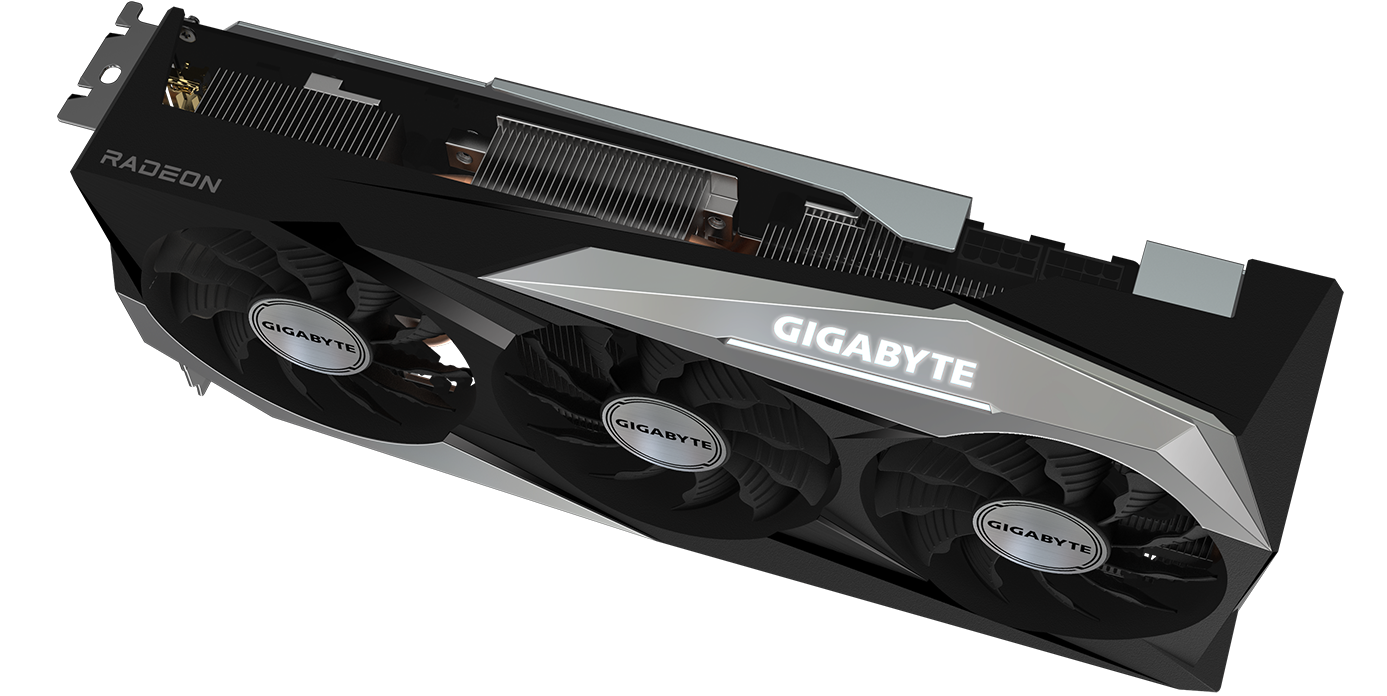Gigabyte's RX 6800 XT Aorus Master Cards Are Also Getting the On-Cooler Display
Masterful monitoring for a Master card
Yesterday marks the day that the custom AIB RX 6800 and RX 6800 XT cards were revealed (our unboxing of the Sapphire RX 6800XT Nitro+ here), and Gigabyte is joining the fray with its own Aorus Master series alongside the more mainstream Gaming OC line.
Of course, the star of the show today is the Aorus Master RX 6800 XT, which comes packing a massive triple-slot, triple-fan cooler and is absolutely smothered with RGB. The cooler comes with a backplate, and most notably, a small LCD screen on the side of the GPU for displaying GIFs, custom images, texts, or monitoring the GPU temperature.


The RX 6800 Aorus Master comes with the same design philosophy, with both cards also featuring elaborate VRM circuitry fed by a pair of 8-pin PCI-Express power connectors. Default, both cards come with three DisplayPort 1.4a ports and one HDMI 2.1 port, but the RX 6800XT Aorus Master also comes in a variant that swaps one of the DisplayPort outputs for a Type-C jack.
Normally, the Aorus Master line features Gigabyte's highest-clocked GPUs, but at this time, the company hasn't revealed clock speeds yet.
Don't Need the Bling? Go Gaming OC

If the extravagant designs of the Aorus Master line doesn't appeal to you, or you just don't want to spend top dollar on a card, Gigabyte also has the more approachable Gaming OC line of cards. These skip the majority of the RGB, lighting up only the Gigabyte logo and a line underneath on the side of the card. They do still come with great board designs, dual-bios, and triple-fan coolers, so they should still be a solid improvement over the reference cards without driving the price up too much.
Clock speeds for the RX 6800 Gaming OC are rated to boost up to 2155 MHz (reference is 2105 MHz), with typical game clocks at 1925 MHz over the reference 1815 MHz. The RX 6800 XT Gaming OC model bumps those figures up to 2285 MHz boost (reference 2250 MHz) and the game clock up to 2045 MHz, where reference sits at 2015 MHz.
All of these cards should offer excellent 1440p and 4K performance, competing with the Best Graphics cards.
Get Tom's Hardware's best news and in-depth reviews, straight to your inbox.
No word on pricing or availability, but at this time, we wouldn't get your hopes up for any great deals.
Niels Broekhuijsen is a Contributing Writer for Tom's Hardware US. He reviews cases, water cooling and pc builds.
